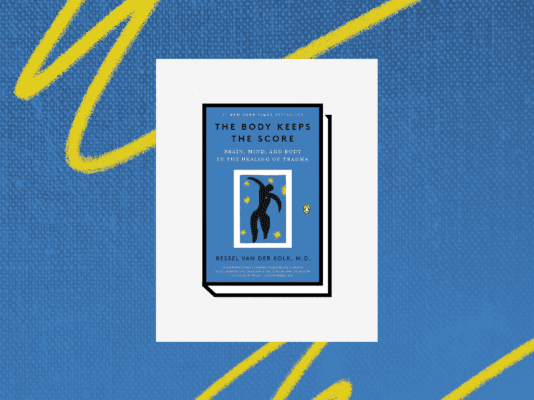In a moment of politicization and tribalism, conversations are always difficult. There are any number of topics today that cause controversy: who to vote (or not) for in the next election, responding to COVID restrictions, and how to think about protests both domestically and abroad. But there are few conversations that are as difficult to have as discussions of race. While Christians should be able to have these conversations because of our shared identity in Christ, we too are prone to avoiding the topic because it can be hard, difficult, and awkward. Isaac Adams wrote his new book, Talking About Race: Gospel Hope for Hard Conversations, to counter that problem. Adams offers hope for how to have these conversations and some guidance on where to begin.
Alex Ward: You originally set out to write a book about what to do, and instead ended up writing about how to talk about the issue of racism. Why was it essential to make that shift, and why do we need to start there?
Isaac Adams: Often when I teach on race and racism, the question I know I’ll be asked is, “What can I do?” And in so many ways this is a great question. While we Christians aren’t saved by good works, we are saved for good works (Rom. 7:4; Titus 2:14). Yet, as a pastor, I often find people wanted to go and do big things as regards racial justice — they wanted to march down the street; they wanted to maintain unity in their church — yet these same people couldn’t even have a constructive conversation with the person they dreaded seeing at Thanksgiving, much less on Sunday morning. It seemed to me, then, that before we could talk about action, we’d do well to figure out why we couldn’t talk at all. Figuring that out would have us be that much better equipped for the good and right active pursuit of racial justice.
AW: In the book, you use these fictional characters to unpack some of the common responses to the topic and provide an entry point. Why start with a story? Why not just begin with application and teachings?
IA: There’s something in people that loves a story. We see Jesus use them so often — the parables. Nathan, in 2 Samuel 12, when confronting David uses what? A story! David is sucked into it before he realizes that he is the bad guy. Isabel Wilkerson’s The Warmth of Other Suns, though massive, reads beautifully because it’s told primarily through the lens of story. And so, I landed on a story because a fictional account would help me grasp the complexity that people are. Writing straightforward, didactic stuff, while I do that, doesn’t allow for painting the complexity that you and I so often live in. A person is more than their political opinions, their racial perspective, their racial sins. A story helped me to paint that complex picture more clearly.
AW: When reading the chapter about the two sisters, Anna Beth and Samantha Lee, I was struck how often I have seen their argument play out, whether in real life or social media. One is more concerned with structural issues and doesn’t think her church and peers care enough about racism. The other thinks an overemphasis on race is part of the problem causing the divisions and anger. So as you look at the state of the discourse among white evangelicals today with one another, what counsel would you offer?
IA: I try to offer a lot of different counsel in the book, as there are so many things to address. One piece of counsel I would give is to listen to the perspective of non-white evangelicals, and I praise God for many of my white brothers and sisters who do that. That said, often, the things that determine “the race conversation” are the anxieties and burdens of white evangelicals. But it’s important to realize that all people in the kingdom of God have anxieties and burdens that need to be addressed.
AW: One of the main reasons, you write, that we should engage in cross-race conversations about this topic is because “love compels” us. What do you mean by that? And if so, why are we so hard-pressed to have these conversations?
IA: I meant that love ought to be the main motivator behind our conversations. Without this, we could have all racial knowledge in the world and still be a clanging cymbal (1 Cor. 13). To love God and love neighbor are the two greatest commandments, and so it’s love for God’s glory, love for our Christian witness, love for our hurting neighbors that ought to motivate us — not revenge or power.
In terms of being hard-pressed, I think it’s easy for many American Christians to have a biblical gospel in name but a prosperity gospel in function — a gospel that says life should always be easy. But, of course, we know that Scripture says quite the opposite. In the world we will have trouble (John 16:33). I say this because I think it’s easy to assume that love should be pain free. But the cross shows us that love can be painful, difficult, messy. And so much of what’s going on in our conversations about race is painful, difficult, messy. So while love is our motivator, it actually presses us further into hard things rather than further from them. Still, those hard things, I’d say, are good and worthwhile things to wrestle with.
AW: The recent COVID lockdowns and the protests for racial justice of the last few years have highlighted the exit of many African Americans from predominantly white congregations. Your book thinks through that process and doesn’t condemn Christians who make a decision to stay or leave. How would you encourage Christians to wrestle with that choice? Are there clear reasons why someone should choose to leave or stay?
IA: I appreciate this question! In the book, I tried to tackle questions like these head on. My main encouragement for Christians wrestling with this choice would be to fear the Lord most in the decision. It’s easy to fear what people will say about you, whether they call you an Uncle Tom for staying or a theological liberal for leaving. It turns out, though, that these aren’t the only two options. What’s more, someone’s opinion of you pales in importance compared to the Lord’s opinion about you. That said, the decision to leave or stay can be so difficult, so painful. As an African American who often navigates white spaces, I felt I had to address The Black Exodus from predominantly white churches.
Regarding the clear reasons to stay or leave, yes — there are some reasons that are clear, and some that aren’t so clear. I lay that out on pages 32-36 in my book.
AW: A helpful part of the book is the reminder that conversations about race are not just about the white-black binary, even if it appears to be the most pressing and visible. As you wrote about Jane (Eun-ji) and Luis, what were you hoping Christians would understand about this conversation?
IA: The black-white conversation is obviously an important one, and it’s a historically unique one. However, the kingdom of God is wonderfully colorful; it’s not just black and white. And I wanted to convey that in the book because if we’re going to faithfully follow Jesus amidst race relations, we’re going to have to remember that he bled and died for all tribes, not just ours.
AW: Throughout the book, I was constantly thinking about the way that tone was essential to the conversations, particularly one of humility and lament as well as a refusal to impute motives to others or respond with sarcasm and condescension. How can Christians go about cultivating that in their own lives and conversations? The lives of their families? Their churches?
IA: Start with prayer. Ask the Lord to reveal to you your hidden faults (Psa. 19:12). Then, go to a brother or sister from the “other side” and admit to them some things they’re right about. Then pray some more. Apologize for some of the ways you have not conducted yourself helpfully in these conversations. Then pray some more. Then, tell that person some things you are afraid about regarding this conversation. Then pray some more. Confession, humility, vulnerability, prayer — this is how we lower defenses rather than make other people defensive.
AW: For a topic that is so polarizing, what encouragement would you offer for how to get the conversation started? And what should be our goal in that conversation?
IA: There’s no better goal than Ephesians 4:29: “Do not let any unwholesome talk come out of your mouths, but only what is helpful for building others up according to their needs, that it may benefit those who listen.” The goal, then, is to benefit others. In terms of getting started, you would be shocked at how much talking to God (praying) before talking to that person can help you. After prayer, you might just print out this interview, ask the person to read it, and ask two questions: 1) What did you think of this? 2) Can I please share what I thought, and some of my hopes and fears in this conversation?










